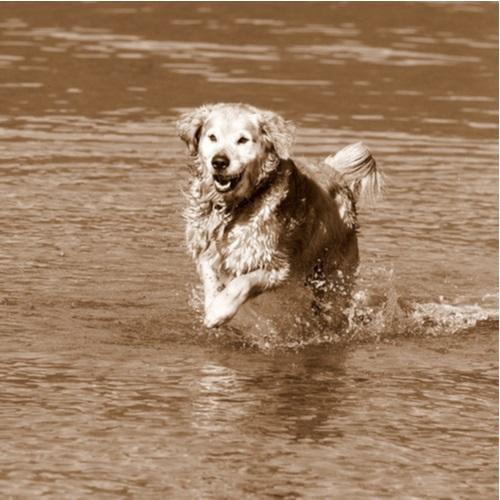Recognizing Osteoarthritis In Your Pet by Lauren, RVT
- posted: Feb. 13, 2018
Recognizing Osteoarthritis In your Pet
By Lauren, RVT
One of the most common conditions that our pets can develop is called osteoarthritis, otherwise known as arthritis. There are various factors that can contribute with this condition. Commonly, it comes with age, as it does with humans. However, it can arise from old injuries, genetics and obesity as well. Arthritis is a general term for abnormal changes in the joint. The cartilage serves as a cushion to protect the bones in joints. The cartilage thins resulting in friction and pain, resulting in lack of mobility. Arthritis can be hard to identify as it often times can be subtle signs. It is important to recognize these signs and alert your veterinarian. Upon examination, your veterinarian will likely manipulate the affected joint listening and feeling for cracking, grating and thickening along with a decreased range of motion. Radiographs are best to diagnose arthritis as x-rays allow us to see any visible changes in the joint. Signs your pet may be experiencing arthritis are as followed:
Intermittent limping/stiffness (especially after vigorous exercise and prolonged periods of rest
Difficulty moving (can be reluctant to do things that were previous easy to accomplish, such as jumping in the car or going down stairs)
Licking/Chewing at the joint (often indicative of pain which can leave to inflamed skin and/or hair loss over time)
Fatigue (lack of interest in activity, tires more easily)
Behavioural Changes (withdraw from touch, aggression, irritability)
Signs can be more difficult in cats as they are very stoic animals. They often times simply get less active.
As there is no cure for osteoarthritis, the main goal is to control and increase movement and function of the joint. Ultimately, we are trying to slow the progression of the disease. Physical therapy can be helpful in maintaining and increasing the range of motion in your pets joints. This can be done through exercises, swimming and massage. Joint supplements such as glucosamine, chondroitin sulfate and omega 3s are also recommended for further support. Additionally, there are therapeutic diets such as Hills j/d and Royal Canin Mobility Support. These diets are complete and balanced foods formulated to help preserve healthy joint cartilage along with maintaining a healthy weight. Keeping your pet lean is vital in avoiding the extra stress on their joints. Long term medication such an anti inflammatorys can also be used to reduce swelling and pain. However, the use of long term anti inflammatory can have an impact on their liver and kidneys making it important to have bloodwork run every 6 months. Lastly, there are injections available called Cartrophen Vet. This prescription only, injectable medication works to modify the underlying arthritic processes to relieve pain and discomfort.
If you notice your pet experiences any of the signs above or have any questions about treatment options, call us today at 416-245-8805.

Location
Find us on the map
Office Hours
8:00 am - 9:00 pm
8:00 am - 9:00 pm
8:00 am - 9:00 pm
8:00 am - 9:00 pm
8:00 am - 9:00 pm
9:00 am - 5:00 pm
Closed

